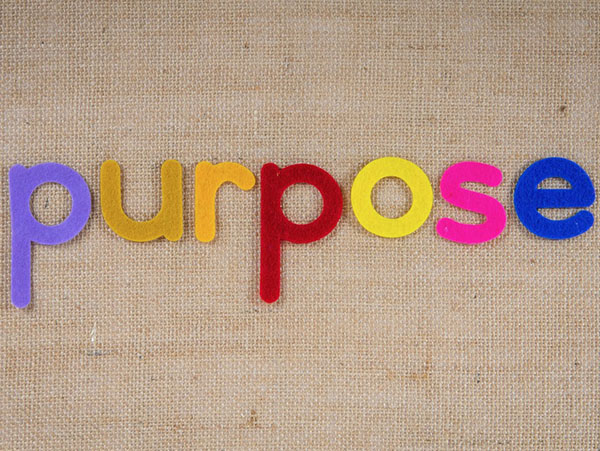News - Branding
Stop Mediocrity, for Heaven’s Sake!
by Georges Najm
February 24, 2014
I personally see that this ranking is truly shocking, for numerous reasons that pushed me to write this paper. It’s terribly sad for both the creative and advertising industry in Lebanon and even for the national economy as a whole. I cannot but express my absolute stupefaction concerning those so-called “published facts”.
“If you’re not a brand, you’re a commodity”-- Philip Kotler
To start, I want to state that those “things” are simply not “brands”. They categorically cannot be called “brands”. We have to agree on this and this is unfortunately non-negotiable. I would like to invite curious and hesitant readers to go back to each and every possible international literature about branding where they will find tons of American and European books tackling the definition(s), role(s), and stature(s) of a true “Brand”. Then they will understand that those are absolutely not brands! Those are stupid names and labels, one of which could more possibly be the name of a porn magazine rather than a drink. We’re talking about very basic commodities that have no chance, whatsoever, to be called brands. If you don’t agree on this point, stop reading this paper; and, most importantly, operate an immediate strategic shift in your careers shall you think that you were a marketer, because I am afraid to tell you you’re absolutely not.
That said, I would like to go back to the ranking problematic, which is obviously made and calculated according to the annual ATL spending levels in Lebanon for 2013. We all know that no one in Lebanon pays his media buying based on the rate card. As a matter of fact, no one in the world does… Negotiation is the base of business and the art of buying. All leading brands, including the biggest in the world, negotiate their media rates. The problem is certainly and obviously not the differential between the rate card, which is the calculation base of the whole so-called study, and the effective paid rate. The problem is the extraordinarily huge differential! When you do your calculations for those “brands” media spending based for instance on a 5 to 7 K USD rate for a given Lebanese medium peak time 30 seconds TVC airing, while the given so-called “brand” pays a mediocre rate of 100 to 500 USD for it, it’s not a “differential” anymore. It’s a huge error! It’s what the French so eloquently label “à côté de la plaque”… All communication experts in Lebanon know that there are ultimately 100 respectable brands, including some leading banking names figuring on this ranking thing, thanks to which the industry survives. Those actors pay the rate card minus a certain negotiated and reasonable percentage, which is a global media buying rule. However, when it comes to paying zero dollars plus epsilon %, it is absolutely not the same. The rate card and the whole ranking become meaningless. This whole ranking thing has to be reviewed and we should cease hypocrisy and stop hiding behind stupid figures that a 10 year-old school student, with a simply acceptable level in maths, would immediately tell is false!
Those “brands”, to be frank with you, give me nausea… Everything about them does. And I bet it’s the case of the majority of the readers of this esteemed publication. As a matter of fact, they’re not very legal and everyone in Lebanon knows they’ve had problems with the government, particularly with the Ministry of Health. How could they continue advertising? How could they advertise a banned medicine? How could they advertise an alcoholic beverage during air times where the audience definitely includes kids and minors? How dare they bombard the Lebanese population on a daily basis by insulting their common sense with stupid and meaningless ads? Those “brands” domesticated the media. They destroyed their price structures. They demolished the whole organisation of a normal, decent advertising media scene. They’ve done enormous damage to the country. And, as a gift for their ugly work, we give them another nice trophy to display in their offices stating they’re in the Lebanese “Branding” top 3… What a shame! And what a misjudgement!
I always start my university advertising course for new students with what seems to me the most important chapter: the ethics of the advertising industry. The dos and don’ts… Oops! I forgot that no one cares about ethics in my poor country. But I always insist on getting back to ethics. I strongly believe some people will be all ears… Ethically speaking, everything those “Brands” do is not feasible. The only possible ethical thing to do is to make sure their products are legal, and to make sure they are promoted properly, both creative wise and media planning wise.
Media vehicles in Lebanon have a huge responsibility and lots to do in this regard. They are morally responsible for the miserable level the country has reached. They’re requested first to play a fair game vis-à-vis the normal and decent advertisers and brands that give them their money. They absolutely must stick to a transparent pricing method and a normal incentive scheme. Moreover, finance and money aside, they have the ethical obligation of establishing and applying, once and for all, proper and decent guidelines for the industry. In this regard, they have to make sure the products they’re giving space to promote are at least legal. They must oversee, and reject if needed, media operations and habits that obviously seem problematic. For instance, do Lebanese TV stations feel it normal, ethical, and feasible to air a TVC promoting alcoholic beverages during daytime, sometimes during kids programmes? Do OOH actors, so happy with the (so late) introduction to Lebanon of LED screens, see it normal to air a full 20-second TV commercial on a screen supposed to solely display still pictures? How could they accept, for some additional few dollars, to literally “air” on their screens those silly commercials of those three stupid “things” that are called “Brands”? Do they know that what they’re doing is illegal all over the world? Do they know for example that they are jeopardising peoples’ lives, and that some innocent people could have eventually died in car accidents because of them and their “three heroic brands”?
In the absence of necessary legislation in this field, they must know that people are observing them and know exactly what is being done. They cannot simply make cash in an improper way! If it keeps going in the same direction, don’t be shocked if you ever see ads for a “brand” of cocaine…
Based on all the above, I officially ask the concerned persons, most of whom were evoked above and who perfectly know themselves, to stop their mediocrity and to spare us their dumb stories… We’re living in a country where practically nothing functions properly. The advertising industry is supposed to lead the way and to give the ideal example of professional, ethical, creative, and responsible corporate behaviour… Such things are simply not acceptable and they need to immediately stop.
 Georges Najm is a senior expert in marketing communications. He is Co-Founder and Partner at Clémentine sal. He is also Managing Partner of Noise sarl PR & Events and an instructor at USEK School of Business, where he delivers three Marketing courses: Advertising, Media Planning, and Branding for BA and MBA students. He holds an MBA as well as a Specialised Masters in Marketing and Communications from ESA and ESCP Europe. His professional thesis was dedicated to the study of the use of fine arts in corporate communication and the advantages conferred to companies by such a strategy. @georges_najm.
Georges Najm is a senior expert in marketing communications. He is Co-Founder and Partner at Clémentine sal. He is also Managing Partner of Noise sarl PR & Events and an instructor at USEK School of Business, where he delivers three Marketing courses: Advertising, Media Planning, and Branding for BA and MBA students. He holds an MBA as well as a Specialised Masters in Marketing and Communications from ESA and ESCP Europe. His professional thesis was dedicated to the study of the use of fine arts in corporate communication and the advantages conferred to companies by such a strategy. @georges_najm.





.jpg)





